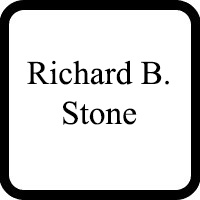Eatontown RICO Act Lawyer, New Jersey
Sponsored Law Firm
-
 x
x

Click For More Info:
-
Buchan & Palo LLC
818 Shrewsbury Avenue Suite C Tinton Falls, NJ 07724» view mapCriminal Defense Law Strong, Dependable Attorneys
Buchan & Palo will work with you to develop a streamlined strategy that ensures the best possible outcome in your case. Finding your path to resolution.
800-891-8920
Not enough matches for Eatontown RICO Act lawyer.
Below are all Eatontown Criminal lawyers.
David R. Cardamone
✓ VERIFIEDDavid R. Cardamone, Esq. focuses his legal practice on family law, real estate, and estate planning, administration and litigation. Dave’s approach... (more)
Stephanie Palo
✓ VERIFIEDStephanie Palo, Esq. devotes her practice to the litigation of family law, criminal defense, and commercial civil litigation matters. Although Stephan... (more)
Kevin Arthur Buchan
✓ VERIFIEDNew Jersey native Kevin A. Buchan concentrates his legal practice in the areas of criminal defense, administrative law, and ethics proceedings. He reg... (more)
Adam Jon Weisberg
✓ VERIFIEDOur firm is dedicated to protecting your rights and advocating for you. Whether you are facing a criminal charge or suffering from a personal injury, ... (more)
Richard B. Stone
✓ VERIFIEDRichard B. Stone is a member of the firm of Stone Mandia, LLC with over four decades of litigation experience. Mr. Stone is admitted to the State Cour... (more)
FREE CONSULTATION
CONTACT Kevin Buchan Tinton Falls, NJ
Kevin Buchan Tinton Falls, NJ Practice AreasExpertise
Practice AreasExpertise





